Find out which low sodium tortillas can make your taco Tuesday heart-healthy while still enjoying tasty, savory tacos and burritos.
This article will discuss the different types of tortillas, how to ensure you have a low-sodium meal using tortillas, and some branded examples to look for when grocery shopping.
*Please note that this post contains clearly identified affiliate links. If you click on these links and choose to make a purchase, I may receive a commission (at no cost to you). As an Amazon Associate, I earn from qualifying purchases.
Top Takeaways
- Sodium and Health: Excessive sodium intake can lead to high blood pressure, and many processed foods, including tortillas, contribute to our sodium consumption.
- Choosing Low-Sodium Tortillas: To select low-sodium tortillas, look for those labeled “low-sodium,” indicating 140 mg of sodium or less per serving. Alternatively, check the nutrition facts for products with less than 200 mg of sodium per serving or less than 8% of the daily value.
- Types of Tortillas: There are three main types of tortillas – corn, whole wheat, and flour. Corn tortillas are the healthiest choice due to their lower sodium content, higher fiber, and less fat.
- Meal Ideas and Homemade Options: Low-sodium tortillas can be used for a variety of heart-healthy meals like burritos, quesadillas, and wraps. You can also make your own tortillas to control sodium content and enjoy healthier alternatives to store-bought options.
Sodium and Health
Whether we like it or not, sodium is a dominating presence in the North American diet. It is found almost everywhere, as around 70% of our sodium intake comes from processed foods, like tortillas (1).
Eating too much sodium can increase our blood pressure, so controlling our intake is very important to heart health.
One of the top sources of dietary sodium is bread. The Centers for Disease and Control Prevention (CDC) report that 40% of American sodium consumption is due to foods such as burritos and tacos, deli meat sandwiches, prepared dishes, pizza, etc. (1).
But worry not, as low-sodium tortillas do exist!
How To Eat Low Sodium
The most important step to eating low sodium is finding products that are low in sodium to purchase and add to your eating routine. Or choosing recipes low in sodium from cookbooks, DASH diet cookbooks or my low sodium recipe archives!
Tips For Purchasing Low-Sodium Tortillas
A tip for choosing low-sodium tortillas at the grocery store is to look for items that specifically state “low-sodium” on the front of the package.
The term “low sodium” means that the product has 140 mg of sodium or less per serving.
Another grocery shopping tip is to look at the nutrition facts table. Look for products that contain less than 200 mg of sodium per serving or less than 8% DV (daily value) per serving, as these are considered low-sodium choices.
Tortillas
Tortillas, like many processed bread products, contain sodium. The amount of sodium in these products varies, but during the research of the article, we found some tortillas that had 480 mg of sodium per wrap.
It is suggested that adults should consume no more than 2300 mg of sodium daily for optimal health (1).
So, eating one tortilla wrap at 480 mg of sodium provides 20% of the recommended maximum daily intake. And let’s be honest, we usually consume at least two wraps per sitting which make that 40% of one’s recommended sodium intake without taking into consideration the filling!
The FDA reports that Americans consume an average of 3400 mg of sodium daily (1). One can see why this is, as our everyday store-bought bread products contain so much sodium!
Nutrition Benefits
Tortillas can be a great source of fiber and healthy fats like olive oil.
Fiber
Fiber is an essential nutrient that promotes excellent heart health. Fiber has a long list of heart benefits, including lowering our cholesterol, managing blood pressure and sugar levels, it can be used to control weight gain, and prevent constipation (2).
For fiber recommendations, men are encouraged to eat 38 g of fiber daily, while women need 25 g of fiber (3).
1 large corn tortilla (44 g) has around 2.77 g of dietary fiber. So, 1 large corn tortilla wrap would provide 9% and 11% of the men’s and women’s daily recommendation, respectively.
When grocery shopping, be sure to look for tortillas that are high in fiber., by looking at the nutrition facts table and choosing one with at least 2 grams of fiber per tortilla.
Olive oil
Another key ingredient in tortillas is oil. Companies can use any type of oil when making their tortillas but some oils are healthier than others.
You can check which type of oil is used by reading the ingredient list of products. I suggested looking for tortillas made with olive oil or avocado oil as these are heart-healthy fats that are part of the Mediterranean dietary pattern.
Olive oil is a rich source of monounsaturated fats and antioxidants such as vitamin E. As such, many studies show that it can lead to great heart benefits. One study found that over 24 years, individuals with a higher intake of olive oil had a lower risk for heart disease (4).
Olive oil is also a key component of the Mediterranean diet. Like the DASH diet, the Mediterranean diet is a popular dietary pattern that emphasizes fruits and vegetables, poultry and fish, nuts and seeds.
Corn vs. Flour Tortilla
There are three types of tortillas typically available at grocery stores; corn, whole wheat, and flour.
Corn tortillas are made from corn, which is boiled with lime water to soften, then it is ground up and ultimately processed into a dough.
On the other hand, flour tortillas require a more straightforward process of combining the essential ingredients of flour, olive oil, and water.
The third type, the whole wheat tortilla, is similar to flour tortillas, but instead is made of whole wheat flour.
The graph below summarizes the nutritional information of corn, flour, and whole wheat tortillas per 100g (5, 6, 7):
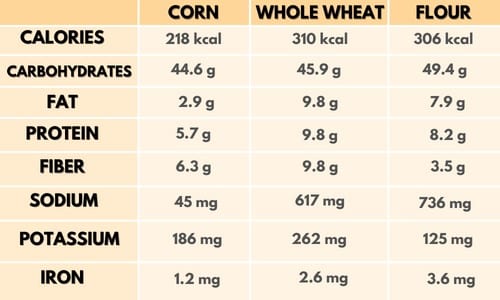
Corn tortillas are the healthier option. 100 g of corn tortillas have just 45 mg of sodium compared to 736 mg of sodium in flour tortillas for the same weight.
Corn tortillas also have more fiber at 6.3 g, less fat at 2.9 g, and more blood pressure-lowering potassium at 186 mg when compared to flour tortillas.
Whole wheat tortillas provide the most fiber at 9.8 grams. However, they still contain a high sodium content of 613 mg of sodium when using a similar portion.
Meal Ideas
Low-sodium tortillas can be used to make so many different types of healthy meals. These include:
- Burritos
- Quesadillas
- Fajita
- Enchiladas
- Tacos
- Sandwich wraps
- Thin-crust individual pizzas
- Breakfast scrambles
- Hummus
- Roasted vegetable wraps
- Fresh fish tacos
- Homemade pita chips etc.
As a heart dietitian, I usually recommend them because they can be easily filled with veggies, beans, and heart-healthy avocado or guacamole for heart-healthy fats, plant-based protein, and fiber.
Ensure The Whole Meal Is Low in Sodium
Even if you pack the meal with a whole bunch of veggies and beans, it doesn’t necessarily mean it is guaranteed to be low in sodium. As there may be added ingredients that provide a boatload amount of sodium.
And these hidden culprits often lie in any sauces or condiments.
Condiments, particularly store-bought sauces, such as taco seasoning, salsa, barbecue sauce, hot sauce, enchilada sauce, etc., tend to have high amounts of added salt, sugar, and fats.
An excellent way to ensure that you are using low-sodium ingredients is to go with homemade sauces and condiments, as you can control the sodium and sugar content of the meal.
Where Can You Buy Low Sodium Tortillas?
Low-sodium tortillas can be bought anywhere like in-person grocery stores or online.
Be sure to look at the nutrition facts table of different products to confirm they are a low sodium option. Generally, a serving with less than 200 mg of sodium o a serving of 8% or less DV is generally considered low sodium.
Make Your Own Low Sodium Flour Tortillas
The best way to ensure you have low sodium flour tortillas is to make them yourself! Homemade tortillas are a healthier alternative to store-bought options as you can control how much sodium/sugar goes in, and what fat is used.
Another bonus to homemade tortillas is that you can save money. Once you know how to make them, all you need is some simple ingredients in your pantry, saving you the effort of going out and spending money.
The process of making tortillas is oh-so-simple! They require just three ingredients; flour, olive oil, and water. They also take little preparation time, especially if you follow this recipe.
But, the big downfall is, again, time. Not everyone has the time or energy to make their own tortillas. If you decide to purchase some, I’ve listed in the next section some healthy tortilla brands.

Top 5 Low Sodium Tortilla Brands
Siete Chickpea Flour Tortillas
Made with chickpea, cassava flour, and olive oil and offers 220 mg of sodium per 2 tortillas.
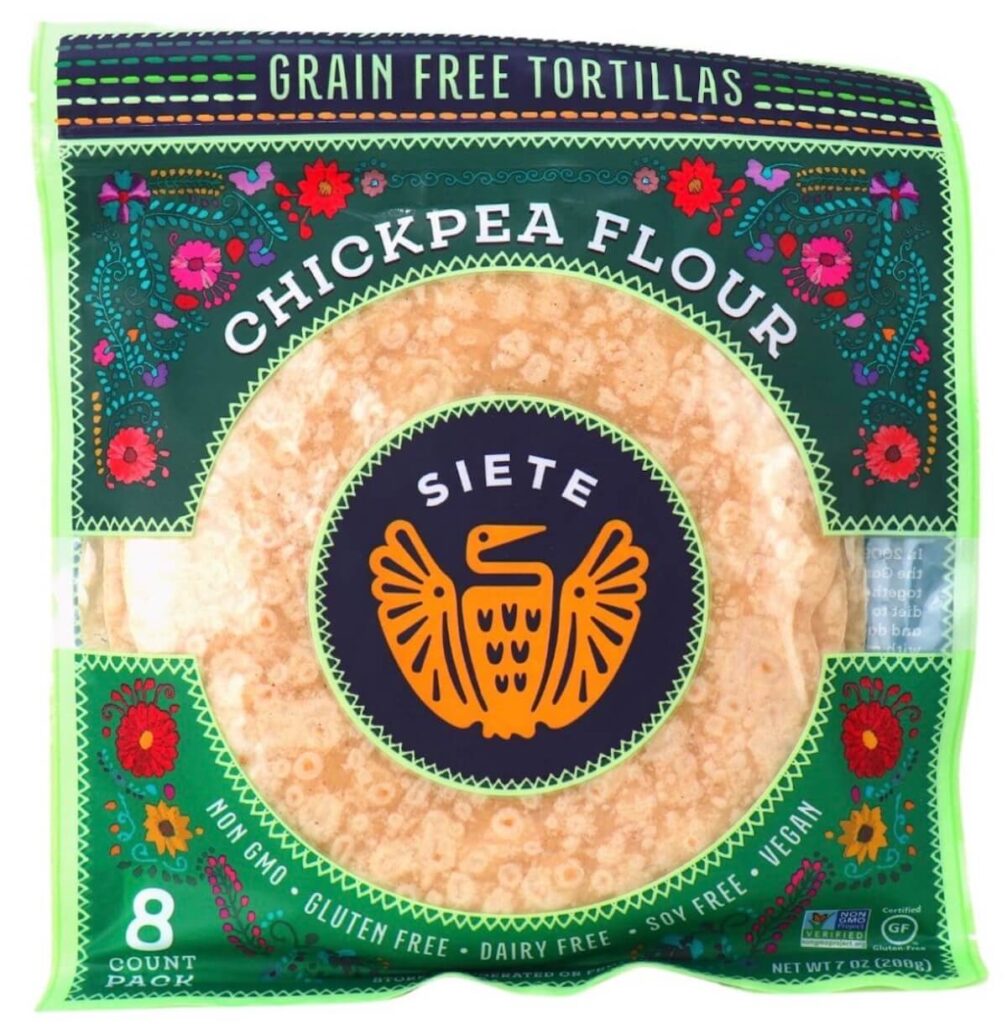
Angelic Bakehouse Whole Grain Wraps
The main ingredients in this low salt flour tortilla include whole wheat flour and sunflower oil, and they offer 115 mg of sodium and 4 g of fiber per 1 wrap.
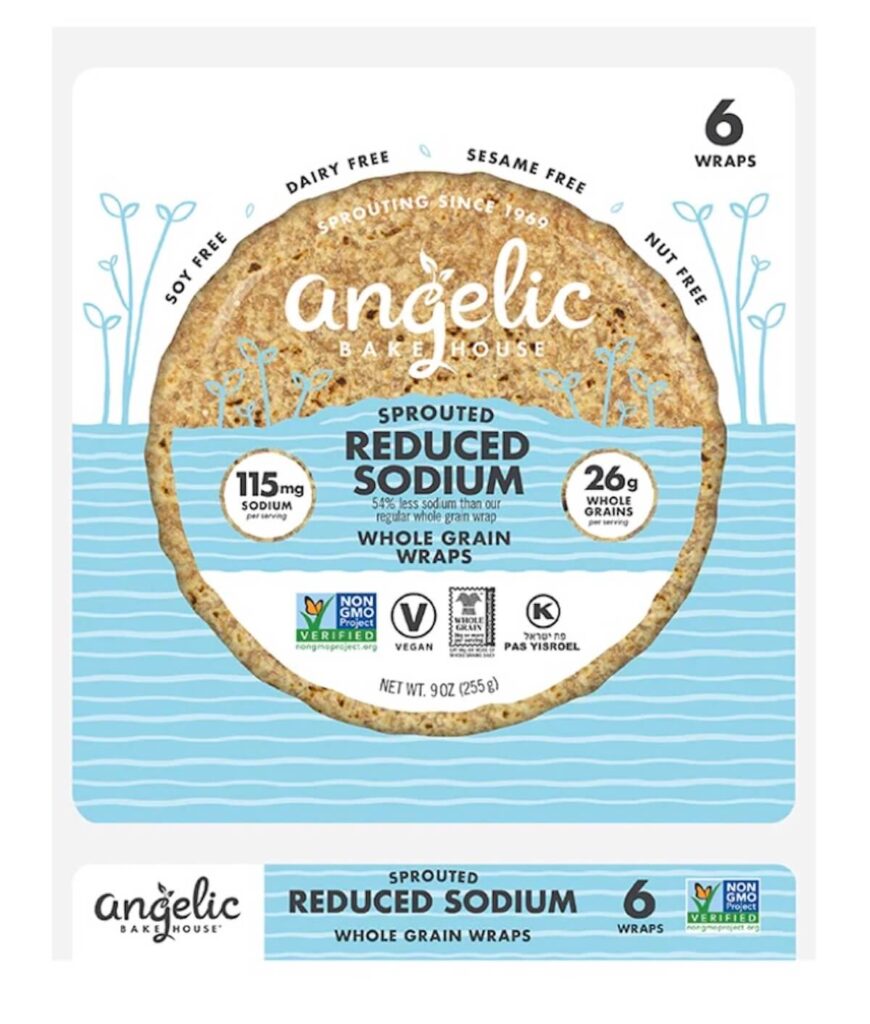
Norigami Wraps
Offers various wraps, including sesame, chia, and poppy seeds.
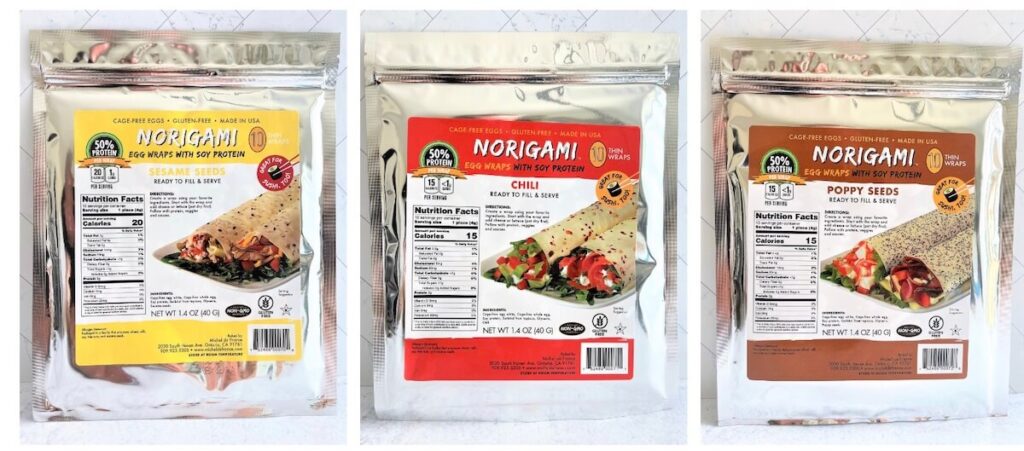
Ezekiel 4:9 Low Sodium Tortillas Flourless
Made with organic wheat, sprouted soybeans, barley, and wheat gluten. It offers 5 g of fiber per 1 tortilla.
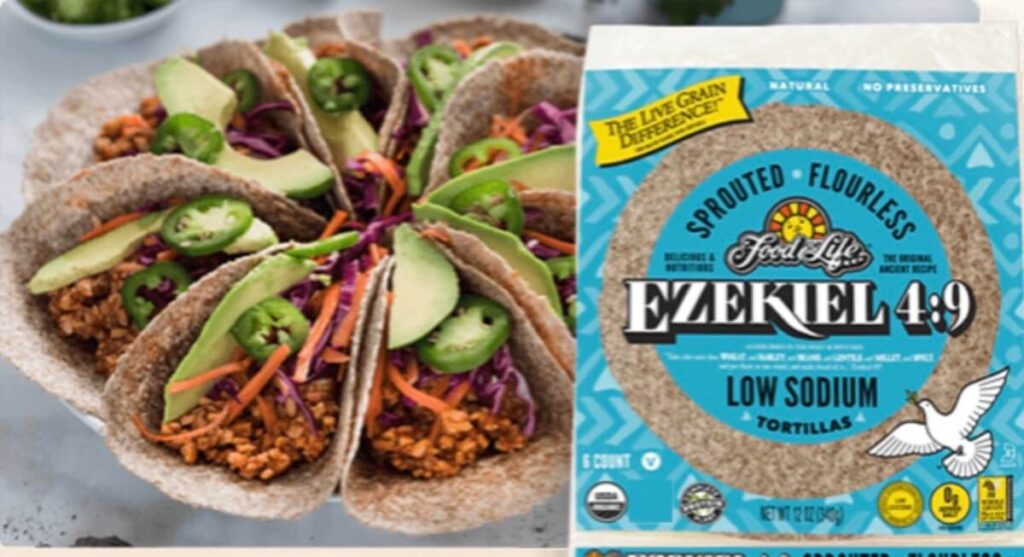
Flatout Multigrain Flatbread
This reduced sodium tortilla offers 12 g of fiber for 1 tortilla and 190 mg of sodium.
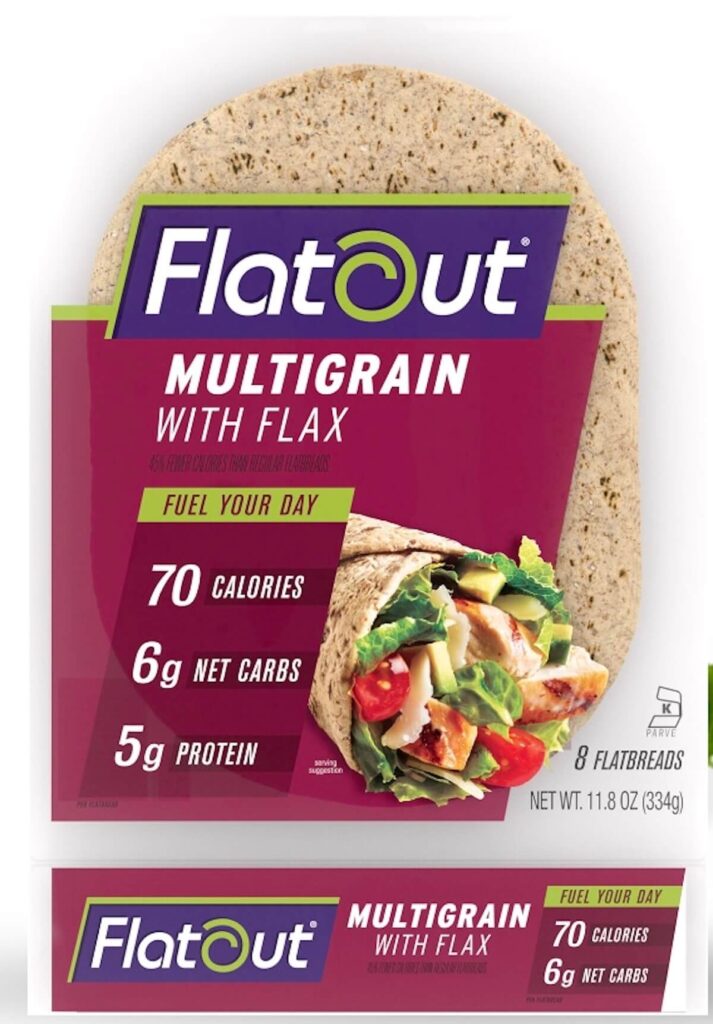
Frequently Asked Questions
Which Tortillas Have Less Sodium
Corn tortillas have the least amount of sodium compared to their flour and whole wheat counterparts. Per 100 g, corn tortillas have just 45 mg of sodium (5). While whole wheat tortillas have 617 mg and flour tortillas have 736 mg (6, 7). An incredible difference!
Which Has Less Sodium Corn Or Flour Tortillas?
Corn tortillas have less sodium than flour. And the difference between the two is shocking. 100 g of corn tortillas contain 45 mg of sodium, while 100 g of flour tortillas have 736 mg of sodium (5, 6).
Corn tortillas provide around 2% of the recommended maximum sodium intake per day, while flour provides 32% of your maximum sodium intake for the day.
How Much Sodium In Homemade Tortillas?
There could be as little as 0 mg of sodium in homemade tortillas. It depends on the recipe and how many tortillas you plan on making, recipes generally list ½ tsp to 1 tsp of salt but often can be executed without adding any salt.
What Tortillas Are Low In Sodium?
Corn tortillas are lower in sodium than whole wheat and flour tortillas. 1 extra large corn tortilla provides 4.1 g of fiber and 29.2 mg of sodium (5). So, if you’re looking to prepare a quick wrap for lunch, the healthiest option is to go for the corn tortilla.
Which Tortillas Are The Healthiest?
Corn tortillas are the best option in terms of low sodium content. 1 large corn tortilla (44 g) has 20 mg of sodium and 2.8 g of fiber (5).
Whole wheat tortillas do have more sodium but a greater amount of fiber. 1 large (71 g) whole wheat tortilla has 438 mg of sodium but 7 g of fiber (7).
Can You Eat Corn Tortillas On A Low Sodium Diet?
Corn tortillas can undoubtedly be added to a low-sodium diet. These tortillas not only have low sodium but also provide fiber, which is especially important for heart health.
Are There Low-Sodium Tortillas?
Yes! You can have low-sodium tortillas through homemade preparation or by purchasing low-sodium brands in grocery or online stores. The best 5 brands for low sodium tortillas are listed above, such as Sieta Chickpea Flour Tortillas, and can be purchased in stores or online.
Are Flour Tortillas Low In Sodium?
Flour tortillas are generally not low in sodium. 1 large flour tortilla (71 g) has 523 mg of sodium, which takes up around 23% of the maximum recommended daily sodium intake (7).
Final Thoughts
Tortilla wraps, although often listed as one of the top sources of sodium in our diets, can still be added to a low-sodium diet.
Corn is the healthiest tortilla option as it has the lowest amount of sodium compared to flour and whole wheat tortillas.
Nevertheless, tortillas present a heart-healthy component to a great meal as you can use them to make a variety of meals such as burritos, quesadillas, wraps, etc., where you can combine a whole bunch of veggies, fruits, beans, and other healthy ingredients!
Be sure to check out my other low sodium recipes on my site if you are watching your sodium intake. They include:
Low sodium mayonnaise, low sodium breakfast idea, low sodium lunch ideas, low sodium pasta recipes, low sodium bagels, low sodium tortillas, low sodium instant pot recipes, low sodium hot chocolate, low sodium marinara sauce, low sodium pancakes, low sodium oatmeal recipes, low sodium pasta recipes,, low sodium salsa, low sodium dips, low sodium hummus, low sodium taco seasoning, DASH diet smoothies, DASH diet desserts, low sodium tortillas, DASH diet soups, tofu bolognese, beet mac and cheese… to name a few.


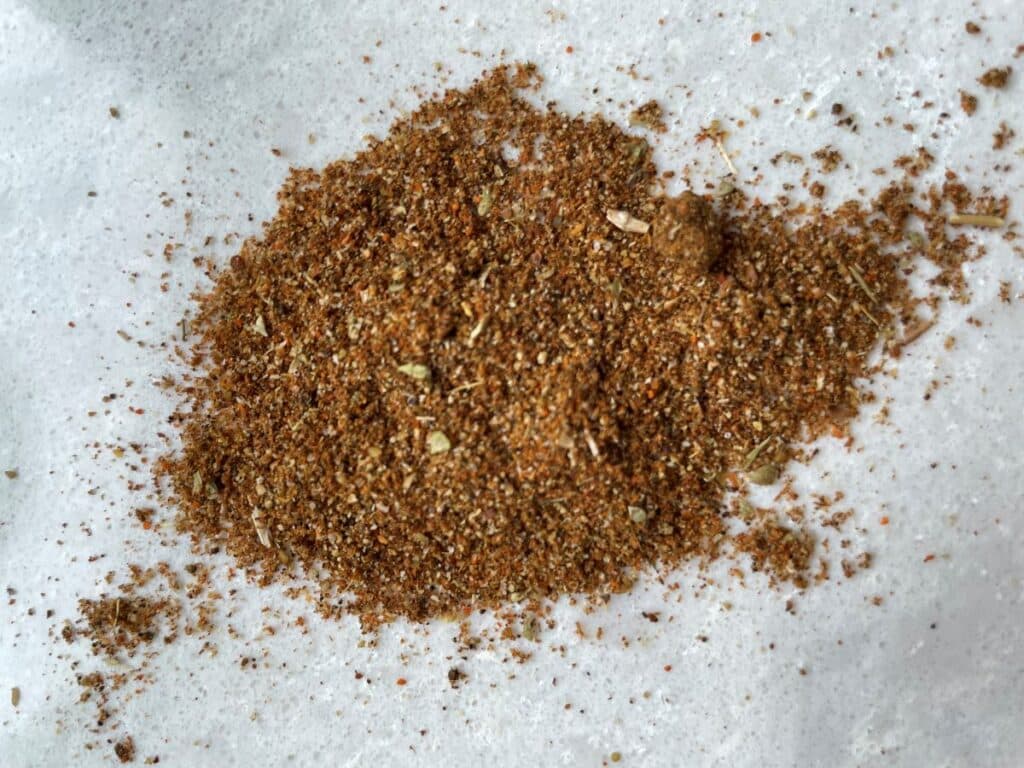
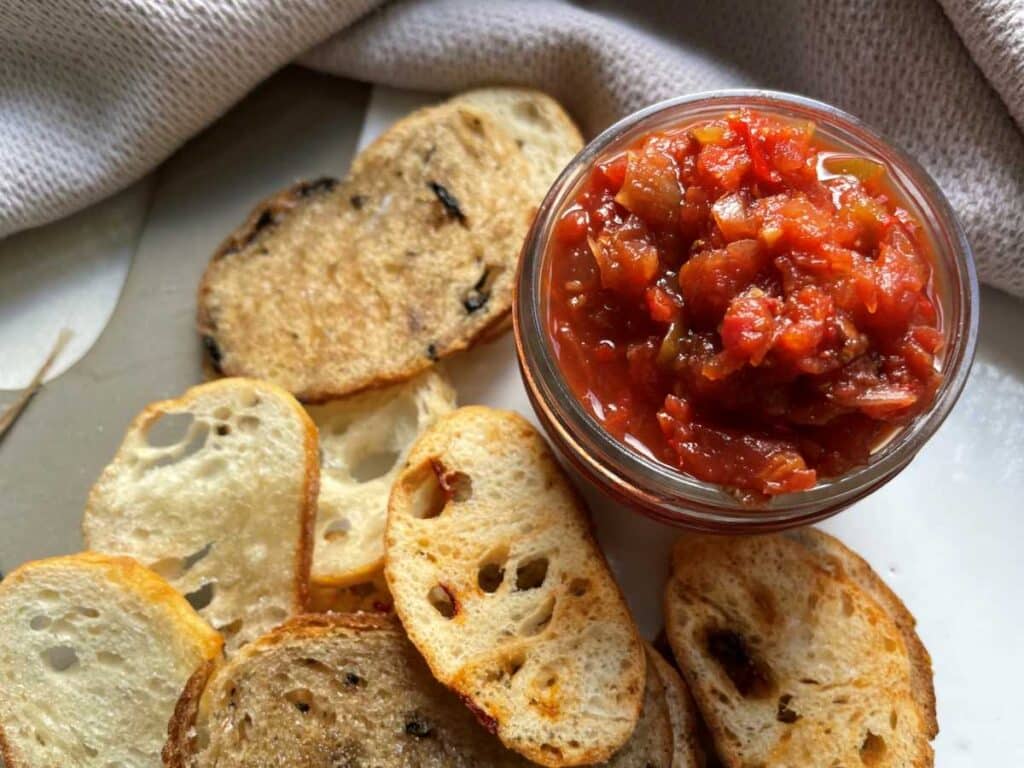
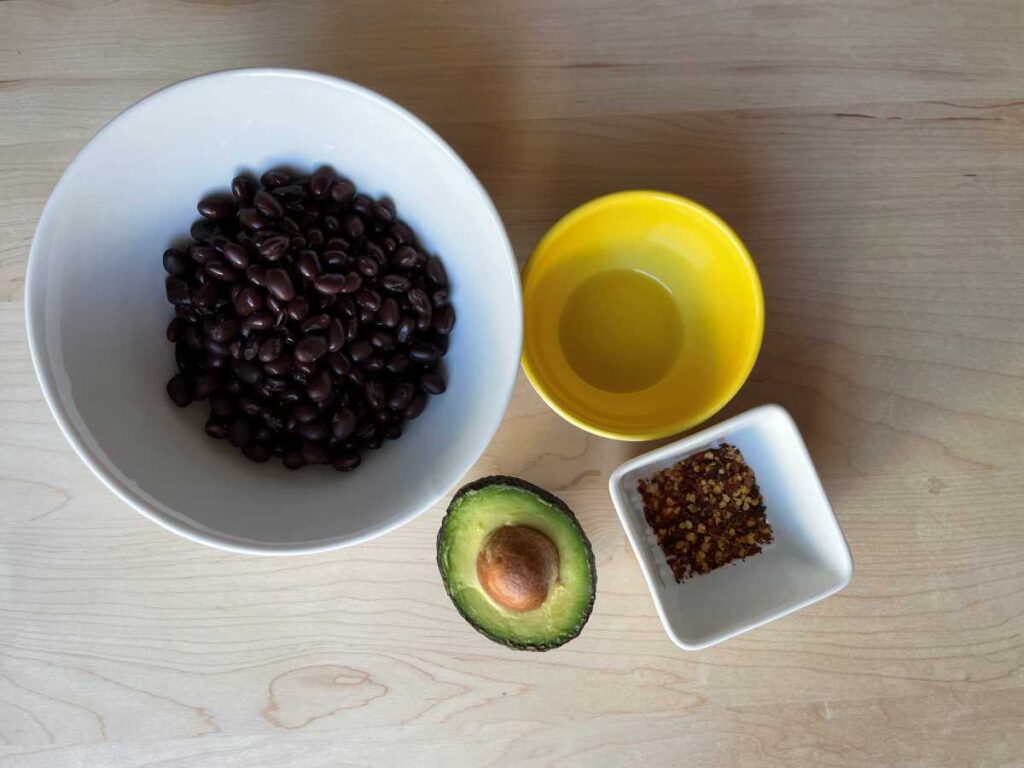
I am looking for low sodium CASSAVA FLOUR TORTILLAS – do you know of any?
Big thanks
~ “: D
Unfortunately I don’t Lisette. If I come across any, I’ll let you know!! V.